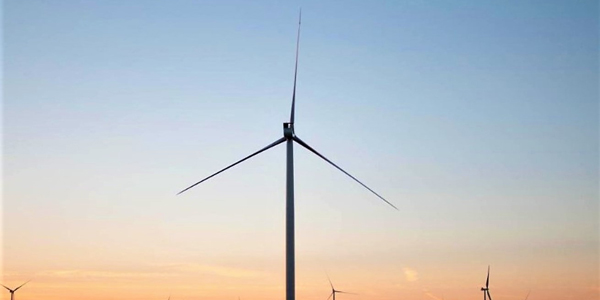By Amanda Durish Cook
EDF Renewable Energy has escalated its push to make MISO speed up the process for connecting new generation to the grid — this time filing a FERC complaint against the RTO.
Time is of the essence, says EDF, which has previously argued that MISO’s year-old revised interconnection queue process is only worsening the backlog of waiting generators.
In its Jan. 4 complaint, the company asked FERC for a “workable” interconnection timeline to ensure that wind developers can secure federal production tax credits before they expire at the end of 2020. It also seeks a commission ruling no later than Feb. 15 (EL18-55).
“MISO’s apathy and lack of attention to this need is unjust and unreasonable and should be found unacceptable by the commission,” EDF said.
The company argues that its projects can only meet the tax credit deadline if MISO completes interconnection studies by June 2019 to allow for the average 18-month construction of a wind farm. But the RTO’s “severely delayed” interconnection study schedule puts the execution of generator interconnection agreements “perilously close to June 2019” for projects that entered the queue’s definitive planning phase in 2016 and 2017, it said.
And EDF takes a dim view of MISO’s ability to hit even the 2019 target.
“Given MISO’s track record over the last full year in applying its new [generator interconnection procedures], it is highly likely that these dates will continue to slip,” the company said.
If that happens, prospective interconnection customers will forfeit “tens of billions” of dollars, EDF warned.
The company contends that MISO’s Tariff is no longer just because the RTO “cannot deliver interconnection studies and a generation interconnection agreement in sufficient advanced time to allow proposed wind generation projects to achieve commercial operation” in time to receive tax credits.
“MISO represented that interconnection studies would be completed and a generation interconnection agreement would be offered in sufficient time to enable proposed wind generation projects to achieve commercial operation before the federal production tax credit expires on Dec. 31, 2020. That has not occurred, and the upcoming prognosis as to timing is not good,” EDF said in its complaint.
EDF brought similar concerns before MISO’s Steering Committee in November, asking the RTO to consider a shortened “fast track” queue process for vetted projects with secured site control, but MISO officials said they would not change the queue process so soon after its early 2017 overhaul. (See EDF Asks MISO to Revisit Queue Overhaul.) Steering Committee members had asked for EDF representatives to return in January with a fuller explanation behind its proposal.
In its complaint, EDF once again argued for the fast-track option and a newly designed two-stage queue, despite FERC’s denial in November of a similar appeal contained in a rehearing request filed by a group of generation developers, including EDF (ER17-156). However, FERC concluded that order by urging MISO to consider additional measures in its revised queue design to avoid delays. EDF now charges that two months have passed without MISO initiating a single stakeholder discussion of the reasons behind the delays or how to diminish them.
MISO planners are sifting through the largest batch of interconnection queue requests in a decade, and the RTO last summer warned stakeholders to prepare for delays. The queue has ballooned to more than 355 projects totaling 60 GW, with 191 projects potentially worth 31 GW entering the definitive planning phase in the August 2017 cycle alone. Before the new design took hold, MISO had predicted that interconnection customers would spend an average of 460 days in the new three-stage definitive planning stage instead of the previous average of 589 days. It remains to be seen if MISO can meet that timeline.





